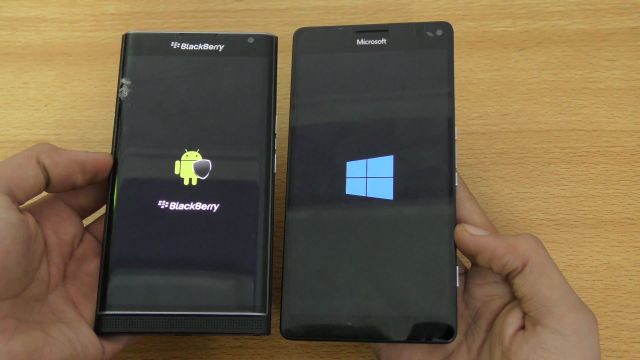
by admin | May 25, 2021 | Markets, Networking, Online Marketing, Social Media, Technology
 New Delhi : While the number of apps installed by smartphone users in India range from five to 207, the average number of installed apps on a phone is 51, said a new report on Wednesday.
New Delhi : While the number of apps installed by smartphone users in India range from five to 207, the average number of installed apps on a phone is 51, said a new report on Wednesday.
However, people do not use all the apps they install. Most of the people in India use just about 24 apps on their smartphones, according to the research from technology research consulting firm techARC.
The findings of the “techARC DIGIT” report indicate that there are some users who go on installing apps without much of a thinking and understanding.
Such extremely high installation of apps can not only drain the smartphones in several ways and also impact its performance, but can also expose such users to various vulnerabilities that could be acquired by the device through some apps.
By category, the social media apps lead the usage with 76 per cent of the users using them on a daily basis.
Mobile gaming has gained a lot in the recent times. It stood as the second most-used category with 70 per cent of the users playing one or the other game daily on their smartphones.
Nearly half of the users use financial apps that include banking apps as well as wallet apps to perform one or the other financial transaction digitally, the findings showed.
The over-the-top (OTT) entertainment apps which include live TV, video-on-demand (VoD) and other such apps showing video content is also gaining popularity, with 40 per cent of the users watching content on a daily basis, the research, based on opinions of 1,000 users, showed.
—IANS

by admin | May 25, 2021 | Business, Large Enterprise, Markets, Technology
 San Francisco : Former rivals BlackBerry and Microsoft have announced they were collaborating to offer enterprises a solution that integrates the latter’s expertise in mobility and security with Microsoft’s Cloud and productivity apps.
San Francisco : Former rivals BlackBerry and Microsoft have announced they were collaborating to offer enterprises a solution that integrates the latter’s expertise in mobility and security with Microsoft’s Cloud and productivity apps.
Through this partnership, the tech titans have collaborated on a first-of-its-kind solution — BlackBerry Enterprise “BRIDGE”.
“We saw a need for a hyper-secure way for our customers to use native Office 365 mobile apps. BlackBerry Enterprise ‘BRIDGE’ addresses this and is an example of how BlackBerry and Microsoft continue to securely enable workforces to be highly productive in connected world,” Carl Wiese, President of Global Sales at BlackBerry, said in a statement late Monday.
“Our customers choose Microsoft 365 for productivity and collaboration tools that deliver continuous innovation. Together with BlackBerry, we will take this to the next level and provide enterprises with a new standard for secure productivity,” said Judson Althoff, Executive Vice President of Worldwide Commercial Business at Microsoft.
By making Microsoft’s mobile apps seamlessly available from within BlackBerry Dynamics, enterprise users will now have a consistent experience when opening, editing, and saving a Microsoft Office 365 file such as Excel, PowerPoint, and Word on any Android or iOS device.
As part of the collaboration, Microsoft added that BlackBerry Dynamics, along with the company’s Secure, UEM Cloud, BlackBerry Workspaces and AtHoc platforms are also now available on Azure Cloud, thus, allowing more flexibility for workers on the go.
—IANS

by admin | May 25, 2021 | Branding, Markets, Networking, Online Marketing, Social Media, Technology
 San Francisco : Google removed over seven lakh malicious apps from Play Store in 2017 that violated its policies – 70 per cent more than the apps it took down in 2016 — the company said on Wednesday.
San Francisco : Google removed over seven lakh malicious apps from Play Store in 2017 that violated its policies – 70 per cent more than the apps it took down in 2016 — the company said on Wednesday.
“Not only did we remove more bad apps, we were able to identify and take action against them earlier,” Andrew Ahn, Product Manager, Google Play, said in a blog post.
In fact, 99 per cent of apps with abusive contents were identified and rejected before anyone could install them, he added.
Google has developed new detection models and techniques that can identify repeat offenders and abusive developer networks at scale.
Google also took down 100,000 bad developers in 2017.
“This was possible through significant improvements in our ability to detect abuse — such as impersonation, inappropriate content, or malware — through new Machine Learning models and techniques,” the post read.
“Copycats” apps attempt to deceive users by impersonating famous apps.
They do this by trying to sneak in impersonating apps to the Play Store through deceptive methods such as using confusable unicode characters or hiding impersonating app icons in a different locale.
“In 2017, we took down more than a quarter of a million of impersonating apps,” Google said.
When it came to inappropriate content such as pornography, extreme violence, hate and illegal activities, Google’s improved machine learning models sifted through massive amounts of incoming app submissions and flagged them for potential violations.
“Tens of thousands of apps with inappropriate content were taken down last year as a result of such improved detection methods,” the company noted.
Potentially Harmful Applications (PHAs) are a type of malware that can harm people or their devices – like apps that conduct SMS fraud, act as trojans or phishing user’s information.
“With the launch of Google Play Protect in 2017, the annual PHA installs rates on Google Play was reduced by 50 per cent year over year,” the post said.
—IANS

 New Delhi : While the number of apps installed by smartphone users in India range from five to 207, the average number of installed apps on a phone is 51, said a new report on Wednesday.
New Delhi : While the number of apps installed by smartphone users in India range from five to 207, the average number of installed apps on a phone is 51, said a new report on Wednesday.

